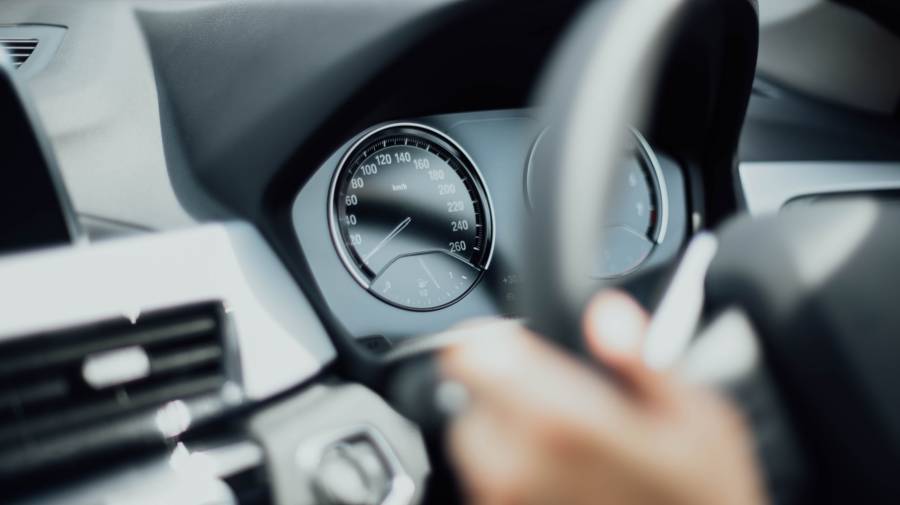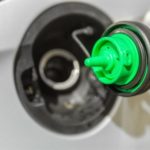Quick Navigation
Why does my engine die when I give it gas? As surprising as it might seem, this is a common question amongst car owners.
Many drivers complain about their cars stalling, remaining idle, or being, at best are, inconsistent despite giving them gas. So what might be the problem?

Simply put, what are the causes of engine failure even when it’s given gas. Better yet, what is the possible solutions for engine dies when giving it gas?
That said, below is a look at some of the common causes and solutions for engine failing when given gas.
Why Does An Engine Die When Given A Gas
If you are keen on answering the question that is why the engine dies when you give it gas, you’ll first need to understand car parts and their importance.
While there is not enough time to delve into all car parts in this post, we highly suggest familiarising yourselves with them.
Furthermore, you’ll need to work around car parts to fix the issue.
That said, certain car parts are vital to a car. When these parts fail, the car fails, or better yet, a car fails to function correctly.
Below is a look at some of these parts. Below you’ll also find how to check if they are the problem and probable solutions to the problem they pause.
The car parts highlighted below are:
- Air Filter
- Carburetor
- Fuel Pump
- Fuel Filter
- Gasket
- Spark Plug
Air Filter
The car air filter can and will get clogged with time, especially if left unchecked. A clogged car air filter is bad for any car, given that it helps block debris and dirt from entering the engine.
When an air filter gets clogged, the car’s engine starves of oxygen. When a car engine lacks oxygen, the chances are high that it’ll die at full throttle.
Even worse, clogged air filters can result in a car engine idling rough.
Unclogging a clogged air filter can help solve the problem with the engine dying when given more gas. There are various ways to check to see whether a clogged air filter is the cause of your car troubles.
Take a torch or any other light and shine it on the air filter. If you cannot see the light or the light is dim, then chances are you are dealing with a clogged air filter.
Once you’ve determined that you are dealing with a faulty air filter, remove it and replace it with a new one.
Carburetor
Carburetors help get the right mixture of air and fuel for combustion to occur. Similar to other car parts, a carburetor at some point becomes faulty.
When a carburetor becomes faulty, it gums up. Gumming up is another cause of the engine dying when given gas.
If the problem is your car’s carburetor, you’ll need to clean or have them cleaned. The process of cleaning a carburetor is simple: you’ll need a soft brush and a carburetor cleaner.
While cleaning your carburetor, check for missing, malfunctioning, or weak springs that control the carburetor’s butterfly valves.
You might need the help of professionals here, given you’ll at some point have to re-install the removed springs the way they were.
If it is a hustle replacing your carburetors’ springs, it is best to seek professional help.
Fuel Pump
The car fuel pump has a simple task, pump fuel from the car’s tank to the carburetor. If not correctly serviced, a fuel pump will fail and become faulty.
A faulty fuel pump fails to keep up an adequate fuel supply from the tank to the car’s engine. It is more so the case when dealing with high RPMs.
With an inadequate supply of fuel, the engine is likely to die. It explains the problem that is engine dies.
If the cause of the engine dying is a faulty fuel pump, then your best bet is to fix it. You’ll first need to confirm that the fuel pump is faulty by inspecting it.
Start by removing the fuel line at the carburetor, then turn your car engine over to check the fuel coming out. If there is little or worse, no fuel coming out, check for cracks at the vacuum line.
Cracked vacuum lines result in faulty pumps. Replace the fuel pump (if it’s faulty), and you’ll have found a solution and an answer to your problems.

Fuel Filter
A car’s engine and carburetor are susceptible. Any foreign object can result in them not functioning properly.
There are car parts tasked with safeguarding certain parts of a car. One such car part is the fuel filter.
The fuel filter has one task, prevent contaminants from entering both the engine and carburetor.
Faulty fuel filters expose both a car’s engine and the carburetor to unwanted contaminants.
In most cases, these contaminants impact the performance of a car’s engine, given fuel rate is restricted.
As with any car part, you want first to confirm that the fuel filter is faulty. It calls for an inspection.
Luckily the process is simple. Start by following the fuel line from the tank to your car’s carburetor and find the fuel filter.
Once you’ve located the fuel filter, remove and check for obstructions. Blow through it to confirm whether there are obstructions.
If you notice obstruction, your best bet is to replace it. If your car’s fuel filter is located inside the tank, consider seeking the services of a professional.
They’ll be able to remove, hook and check to see if it’s faulty without any hustle.
Gasket
Gaskets can cause an engine to die when given gas. So what does a gasket do?
It serves a simple purpose; create a seal that prevents fluids and air from entering or exiting areas where they are not supposed to. Gasket tends to be in particular areas in a car.
For instance, there is a gasket just below a car’s carburetor. This gasket, when working correctly, prevents the movement of fluid or air and out the carburetor.
A faulty gasket below the carburetor pushes air or fluids up the engine. A car’s engine can quickly die when given gas if this happens.
In some instances, the engines go idle (some rough idle).
If you are dealing with a faulty gasket, you’ll need to replace them. Replacing gaskets involves removing them from their location.
Do keep in mind that this process is slightly demanding. Start by removing the air filters and bolts holding the car’s carburetor.
Be careful when removing the air filters to avoid an oil spill. Once you are done, disconnect the levers you see (if any) and check the gasket for any leaks or damage.
In most cases, you’ll need to replace the gasket. This process might prove challenging, and as such, you should consider professional assistance, especially with putting the gasket back in place.
Spark Plug
A dead spark plug can be why car owners experience the problem that is engine dies when you give it gas. To understand this, you’ll need first to know the role a spark plug (despite mall) plays.
The spark plug is tasked with igniting the air and fuel mixture inside the combustion chamber.
When the spark plug is worn out or faulty, it’ll fail to initiate ignition, and as a result, a car engine dies or stalls.
You can tell that spark plug is the issue by removing them and inspecting them. When doing your inspection, you are looking for one thing: the plug’s color.
Spark plugs are brown or light grey. If the spark plug you are holding is of a different color, then chances are it is worn out or faulty.
In other words, you’ll have to replace it. Do keep in mind that spark plugs you should change yearly.
Engine Dies When I Give It Gas – What Is The Best Way To Fix It?
Ideally, you want a professional mechanic to handle all your mechanical problems. Trained professions (mechanics) guaranteed professional work.
Simply put, you can expect them to fix your problem and solve the issue once and for all. Keep in mind that many mechanics today offer mobile services.
You can skip visiting a mechanic shop in your neighborhood and have them visit you at our home or office to determine the problem.

Patrick started his love affair with cars in his childhood. Over the years, he claims a sturdy hold on his driving skills, along with a thorough understanding of cars. We can expect some interesting, holistic, and pleasurable blogs with his flair for writing and his love for cars.
Being a car enthusiast, Patrick has experience comprising of two decades in which he has ridden some of the meanest and strongest machines in the automotive industry. His previous avatars include an automotive professional, photographer, and journalist, and you will certainly experience the roundness of experience in his piece on this site.
In his second decade of reviewing cars and analyzing tools, Patrick is all set to give you convincing, reliable, and the latest information regarding what’s happening in the automotive industry. Currently, he owns a BMW Z3 but cannot get his eyes off Aston Martin DB5. He is a car enthusiast; he loves cooking and listening to music, especially jazz. Here are some of the pieces written by our ace author.


![Gas Gauge Goes Up And Down [Causes + Solutions] Gas Gauge Goes Up And Down [Causes + Solutions]](https://carsupercare.com/wp-content/uploads/2022/04/Gas-gauge-goes-up-and-down-Causes-and-Solutions.docx-150x150.jpg)



